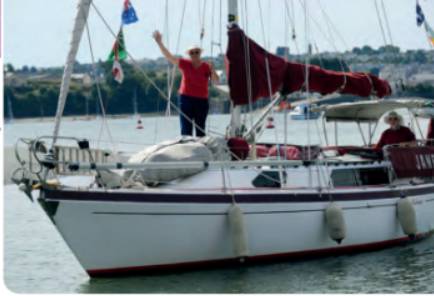
Some more verbs:
(Một số động từ khác)
avoid + V-ing: tránh
promise + to V: hứa
deny + V-ing: phủ nhận
refuse + to V: từ chối
remind + to V: nhắc nhở

Some more verbs:
(Một số động từ khác)
avoid + V-ing: tránh
promise + to V: hứa
deny + V-ing: phủ nhận
refuse + to V: từ chối
remind + to V: nhắc nhở
Compare sentences a and b. How is the meaning of the underlined verb different when followed by an -ing form or an infinitive?
1 a I tried buying a present for her, but she was still angry with me.
b I tried to buy a present for her, but everything was too expensive.
2 a I stopped talking to my friend when the film started.
b I stopped to talk to my friend when I met him in town.
3 a After the film, they went on eating popcorn.
b After the film, they went on to eat pizza.
4 a I won't forget visiting the Taj Mahal - it was amazing.
b I won't forget to visit the Taj Mahal - I've heard it's amazing.
Complete the text with the infinitive (with or without to) or -ing form of the verbs in brackets.
In the UK, people who are travelling long distances by road often stop 1__________ (spend) the night at a roadside hotel. But David and Jean Davidson have spent 22 years 2__________ (live) in one.
The Davidsons first tried 3__________ (visit) Travelodge hotels in 1985. They enjoyed 4__________ (be) there so much that gradually they stopped 5__________ (go) back to their own home. When a new Travelodge opened 65 km from Sheffield, they decided 6__________ (become) permanent guests. They like 7__________ (live) there because it is safe and convenient.
The retired couple can afford 8__________ (pay) for their room because they book it weeks in advance and get a good rate. In fact, last year, they managed 9__________ (save) enough money for a three-week holiday abroad in the USA. And where did they end up 10__________ (stay)?
In an American Travelodge hotel, of course!
Read the Learn this! box. Then look at the highlighted verbs in the text above. Which verb pattern (a-e) does not have an example in the text?
LEARN THIS! Verb patterns a Some verbs are followed by the infinitive of another verb. Do you want to go out? / She hopes to be a teacher. b Some verbs are followed by the -ing form of another verb. She always avoids paying. I spend a lot of time texting. c Some verbs are followed by either an infinitive or an -ing form without any change in meaning. d Some verbs change their meaning depending on whether they are followed by an -ing form or an infinitive. I didn't remember speaking to Jo. (I forgot that I had spoken to her.) I didn't remember to speak to Jo. (I didn't speak to her.) e The verbs let and make are followed by an infinitive without to. She let me drive. I made her laugh. |
Read the text. If you had been on a trip like this, would you have enjoyed it? Why? / Why not?
When Jane and Clive Green stopped working, they decided to go on a trip to Spain in their yacht. They expected to be away for about a week - but in the end, they continued travelling for sixteen years! After they reached Spain in their ten-metre yacht, they did not fancy returning home, so they kept sailing. After crossing the Atlantic, they stopped to explore the islands of the Caribbean for a while. Then they continued to sail west around the world. They ended up visiting 56 countries. They particularly enjoyed swimming with seals near the Galápagos Islands. However, they remembered feeling very anxious near Somalia because a boat would not stop following them. It was actually a fishing boat with an injured man on board, so Jane offered to help him before they continued on their way. They managed to pay for their trip by selling their house back in the UK. They could afford to buy food, but they ran out of money on an island near Fiji. Fortunately, a local woman agreed to give them a box of fruit and vegetables in exchange for some clothes.
SPEAKING Describe the photo in pairs. What would be the best and worst things about going on a long trip on a boat like this?

SPEAKING Work in pairs. Tell your partner about something that you
1 love to do.
2 often forget to do.
3 will never forget doing.
4 will try doing one day.